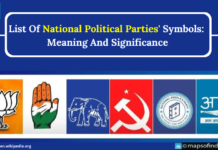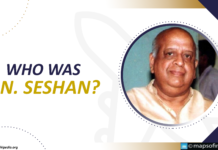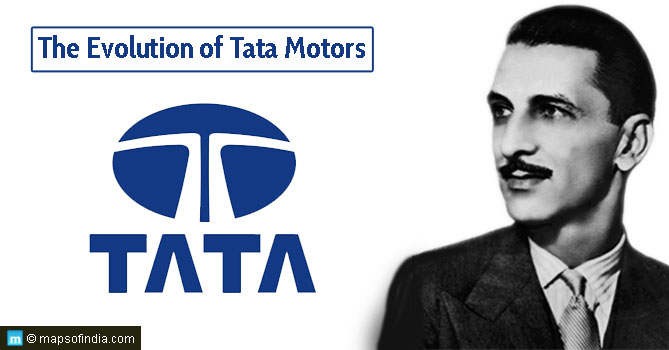
In 2019, India witnessed Merger and Acquisitions (M&A) deals worth $52 billion. The M&A deal of the year in India was wrapped up in December when the Supreme Court cleared Arcelor Mittal’s acquisition of Essar Steel in a deal worth $6.28 billion (Rs 44,000 crore).
The other major deal was the $3.66 billion takeover of Reliance Jio Infratel unit of RIL by Canada’s Brookfield Infrastructure Partners.
As per the 2019 Report by Bain & Company, India closed 3,600 M&A deals worth $310 billion from 2015 to 2018, with 2018 being the best year. Despite global headwinds, M&A transactions touched $2.8 trillion across the globe. Asia-Pacific Region closed deals worth $634 billion.
The M&A deals (665 deals) were lower in 2019, and the downward trend is likely to continue through 2020 (589 deals) before rising in 2020 (600 deals).
Merger and acquisition is part of the evolution process in business. In 2015, India saw eleven large deals (above $250 million) worth $8 billion, with an average value of $0.7 billion per deal.
Insolvency & Bankruptcy Code (IBC) drives M&A
Thanks to the introduction of IBC in 2016, the number and value of transactions that year shot up to thirteen deals totalling $23 billion, with the average value of each transaction rising to $1.8 billion.
The number of deals declined to nine in 2017 though the value of deals closed rose marginally from $23 billion in 2016 to $24 billion. The year 2018 saw a dramatic rise in the number of deals from seven in 2017 to 23, while the total deal value touched $56 billion.
Newsmaker deal of 2017 was the Russian consortium Rosneft taking over Essar Oil for $13 billion. Two of the largest deals closed in 2018 were Walmart’s $16 billion takeover of Flipkart and Adani Transmission acquiring the Mumbai power distribution arm of Reliance Infrastructure for $3 billion.
What drives the M&A business?
Businesses enter into M&A deals for different reasons. Companies wanting to consolidate on core businesses let go of non-core investments. These get picked up by other companies that find synergistic value and are looking for inorganic ways to grow the business. It is a win-win for both.
Businesses in distress, are forced to sell-off parts or complete businesses. For instance, in 2016, India introduced the Insolvency and Bankruptcy Code (IBC) which paved the way for firms to acquire distressed assets of other firms at a good price. It is a quick way to raise topline revenue and also gain market share quickly.
The telecom, energy, media, and industrial sectors have seen some of the major deals in India post-2016.
UltraTech Cement closed two significant deals – Jaypee Cement in 2017 and Binani Cement in 2018. Both were distressed sales.
Telecom major Airtel picked up Telenor in 2018 and Tata Teleservices in 2019, the latter deal yet to receive final clearance from the government. The Tatas were looking to get out of the retail telecom business while Telenor was struggling with growing losses.
Large multinational firms look for the M&A route to enter a country. Acquiring a local firm helps reduce the setting-up time and shortens the learning curve in a new market. Walmart’s acquisition of Flipkart is an example. Fosun Pharmaceutical of China bough Indian pharma manufacturing company – Gland, for the same reason.
Companies may acquire a distressed or non-distressed asset. A healthy company with a positive balance sheet comes at a higher price but also receives a better market response in terms of post-deal valuation. Distressed deals require much work to get them to transition to a positive balance sheet. The human resources and processes transition often pose a challenge. Markets tend to look upon these deals with caution.
Some of the other major M&A and PE deals which drew attention in 2019:
Public sector firm Power Finance Corporation (PFC) bought 52.63 per cent in another PSU, Rural Electrification Corporation (REC), a deal worth Rs 14,500 crore ($2.07 billion).
Tata Group along with SSG Capital and Singapore’s GIC to invest $1.14 billion (Rs 8,000 crore) in GMR Airports. The deal is in the process of being finalized.
GVK Group, which manages Mumbai and Hyderabad airports, offered a 79.1 per cent stake to Abu Dhabi Investment Authority (ADIA), National Investment and Infrastructure Fund (NIIF), and Canada’s PSP Investments in a deal worth $1.08 billion (Rs 7,614 crore). The group plans to pare its Rs 5,500 crore debt to buy additional shares from two South African companies holding a stake in Mumbai International Airport (MIAL).
JSW Steel’s acquisition of Bhushan Steel for Rs 18,900 crore ($2.7 billion) is on hold as the Enforcement Directorate claims the Prevention of Money Laundering Act (PMLA) will require an amendment to clear the deal.
Patanjali Ayurved paid Rs 4,350 crore ($0.62 billion) to acquire the bankrupt firm – Ruchi Soya, through the insolvency process.
Australia’s IAG sold its 26 per cent stake in SBI General Insurance for $ 0.43 billion (Rs 3,072 crore) to Napean Opportunities, an affiliate firm of Premji Invest.
Canada’s Brookfield Asset Management Company bought Hotel Leelaventure’s hotel properties and operations in India for $0.56 billion (Rs 3,950 crore). The deal included hotels in Bangalore, New Delhi, Udaipur, and Chennai. The deal excluded the property in Mumbai but included the land owned in Agra.
French giant Total completed the acquisition of 37.4 per cent in Adani Gas, a deal valued at $0.81 billion (Rs 5,700 crore).




